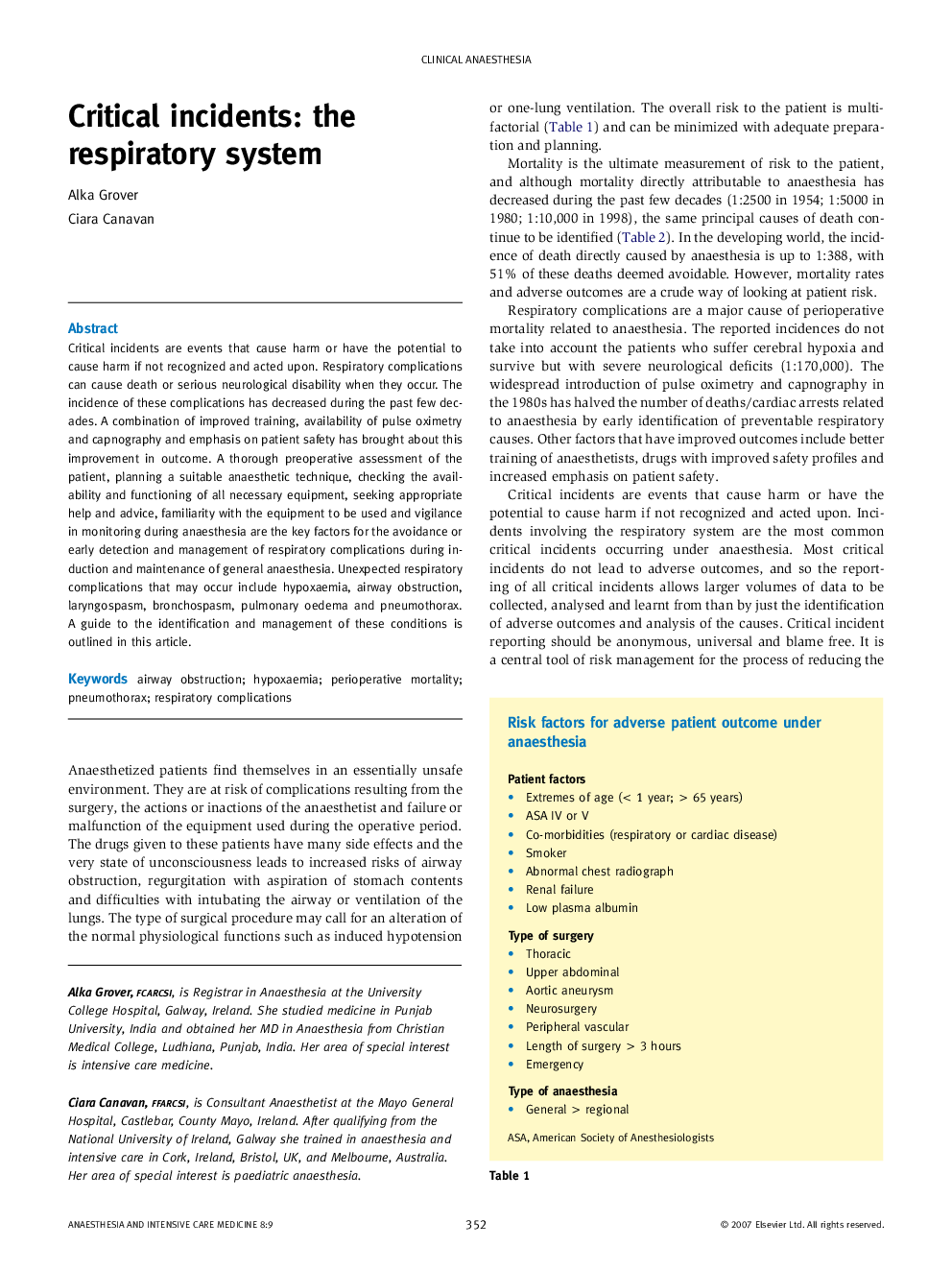| Article ID | Journal | Published Year | Pages | File Type |
|---|---|---|---|---|
| 2743162 | Anaesthesia & Intensive Care Medicine | 2007 | 6 Pages |
Critical incidents are events that cause harm or have the potential to cause harm if not recognized and acted upon. Respiratory complications can cause death or serious neurological disability when they occur. The incidence of these complications has decreased during the past few decades. A combination of improved training, availability of pulse oximetry and capnography, and emphasis on patient safety has brought about this improvement in outcome. A thorough preoperative assessment of the patient, planning a suitable anaesthetic technique, checking the availability and functioning of all necessary equipment, seeking appropriate help and advice, familiarity with the equipment to be used and vigilance in monitoring during anaesthesia are the key factors for the avoidance or early detection and management of respiratory complications during induction and maintenance of general anaesthesia. Unexpected respiratory complications that may occur include hypoxaemia, airway obstruction, laryngospasm, bronchospasm, pulmonary oedema and pneumothorax. A guide to the identification and management of these conditions is outlined in this article.
